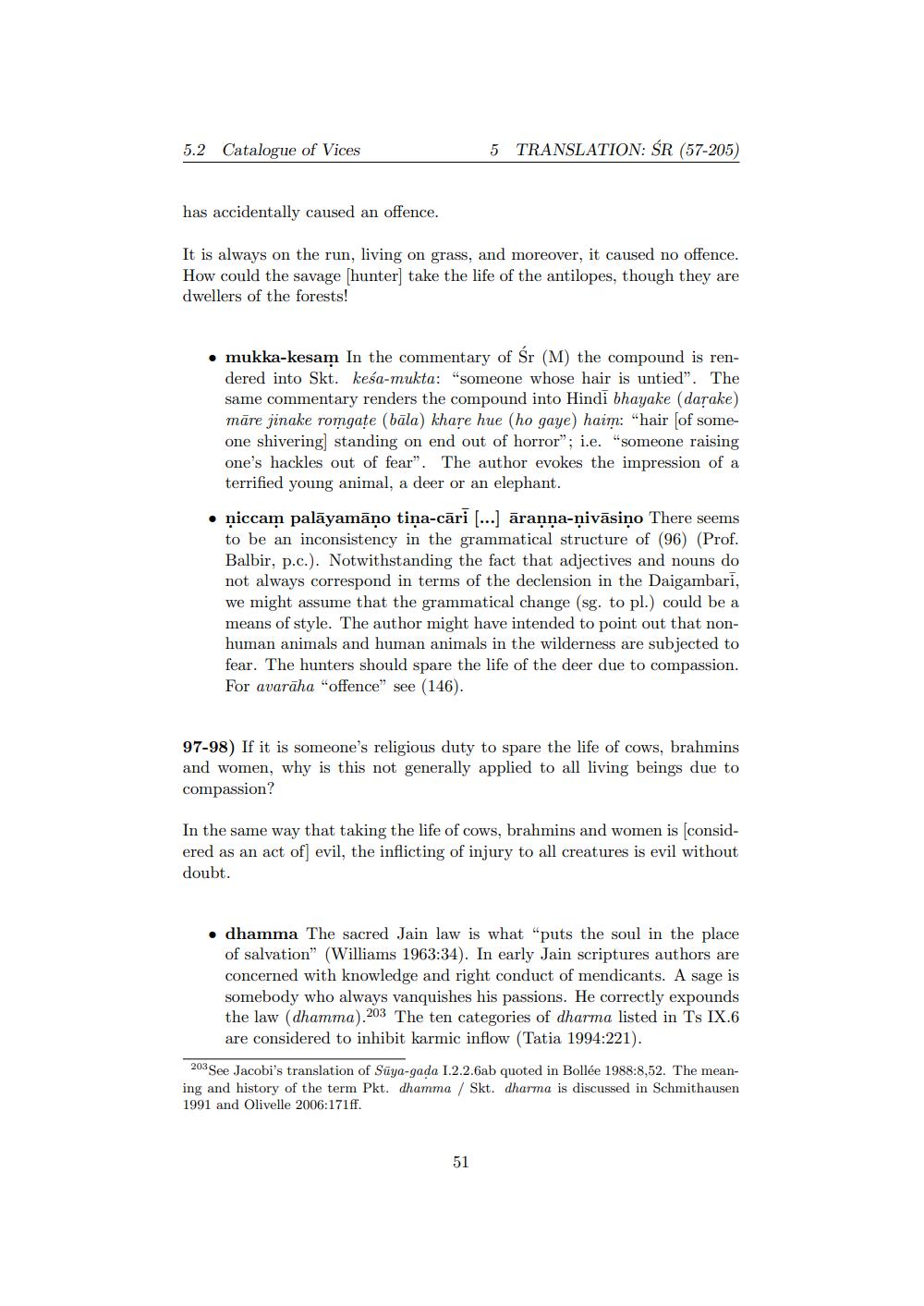________________
5.2
Catalogue of Vices
5 TRANSLATION: ŚR (57-205)
has accidentally caused an offence.
It is always on the run, living on grass, and moreover, it caused no offence. How could the savage shunter take the life of the antilopes, though they are dwellers of the forests!
mukka-kesam In the commentary of Sr (M) the compound is rendered into Skt. keśa-mukta: "someone whose hair is untied". The same commentary renders the compound into Hindi bhayake (darake) māre jinake romgate (bāla) khare hue (ho gaye) haim: "hair [of someone shivering standing on end out of horror"; i.e. "someone raising one's hackles out of fear". The author evokes the impression of a terrified young animal, a deer or an elephant.
ņiccam palāyamāṇo tiņa-cāri [...] āraṇna-șivāsiņo There seems to be an inconsistency in the grammatical structure of (96) (Prof. Balbir, p.c.). Notwithstanding the fact that adjectives and nouns do not always correspond in terms of the declension in the Daigambari, we might assume that the grammatical change (sg. to pl.) could be a means of style. The author might have intended to point out that nonhuman animals and human animals in the wilderness are subjected to fear. The hunters should spare the life of the deer due to compassion. For avarāha "offence" see (146).
97-98) If it is someone's religious duty to spare the life of cows, brahmins and women, why is this not generally applied to all living beings due to compassion?
In the same way that taking the life of cows, brahmins and women is considered as an act of evil, the inflicting of injury to all creatures is evil without doubt.
dhamma The sacred Jain law is what “puts the soul in the place of salvation" (Williams 1963:34). In early Jain scriptures authors are concerned with knowledge and right conduct of mendicants. A sage is somebody who always vanquishes his passions. He correctly expounds the law (dhamma).203 The ten categories of dharma listed in Ts IX.6 are considered to inhibit karmic inflow (Tatia 1994:221).
203 See Jacobi's translation of Sūya-gada 1.2.2.6ab quoted in Bollée 1988:8,52. The meaning and history of the term Pkt. dhamma / Skt. dharma is discussed in Schmithausen 1991 and Olivelle 2006:171ff.




